Creating a vibrant company culture is more than just offering trendy perks – it’s about building meaningful relationships and fostering an environment where employees feel valued and inspired. In this exploration of great company culture, we unveil the eight essential elements that contribute to a workplace where talent not only flourishes but remains committed for the long haul.
1. Credibility: Aligning Words with Actions
In a great workplace, credibility is paramount. Managers and leaders are perceived as trustworthy and credible when their actions align with their words. Research indicates that 83% of employees at top companies believe that management’s actions match its words, a stark contrast to the 42% in average workplaces. Honest and ethical leadership significantly impacts employee retention, overall workplace satisfaction, and motivation to go the extra mile.
2. Respect: A Cornerstone of Positive Relationships
Respect forms the bedrock of strong workplace relationships. Recognizing employees’ efforts, seeking their input, and acknowledging their lives outside of work are key aspects of a respectful culture. The best workplaces often trust employees with flexible hours and remote work options, fostering dedication and engagement. Demonstrating respect goes beyond policies; it creates an atmosphere of trust and appreciation.
3. Fairness: Fostering Positive Employee Experiences
Humans inherently value fairness. Companies that prioritize equal opportunities consistently report more positive employee experiences. Great workplaces excel in fairness, scoring significantly higher in areas such as equal compensation and recognition. While fair pay is important, intangible aspects like pride and strong leadership play a more significant role in overall workplace satisfaction and intent to stay.
4. Pride: A Multi-faceted Source of Engagement
Pride in the job, team, and company is a powerful force. Employees who take pride in their workplace are more engaged, twice as likely to stay for the long term, and six times more likely to endorse their workplace. Consistent reinforcement of workplace pride, even during challenging times, strengthens the sense of unity and accomplishment among employees.
5. Belonging: Valuing Each Individual
Belonging in the workplace goes beyond appreciation for job performance; it involves feeling accepted and valued for who employees are. The best workplaces celebrate achievements, ensure a warm welcome for new employees, and embrace diversity. Employees who feel a sense of belonging are three times more likely to look forward to coming to work and five times more likely to stay with the company for an extended period.
6. Effective Leadership: Inspiring Innovation and Team Collaboration
Leadership can either make or break a team. Effective leaders inspire, motivate, and drive innovation, fostering a team mentality. Great leaders align their words and actions, avoid favoritism, demonstrate competency, honesty, and approachability, and show genuine interest in employees. Investing in leadership development creates a pipeline of future leaders, ensuring a positive impact on the organization’s success.
7. Values: Guiding Stars for Organizational Identity
Core values are the guiding stars that shape a company’s identity, actions, and purpose. Leading with shared values, rather than strict rules, builds trust and empowers employees. A values-driven approach engages and inspires, enhancing innovation, creativity, and productivity.
8. Innovation: Cultivating a Culture of Creativity
Creating a safe space for expressing ideas and making suggestions is crucial for fostering innovation. Workplaces that encourage innovation inspire loyalty, confidence, and a willingness to go above and beyond. Employees at innovative companies are proud of their workplace, view it as a great place to work, and are more likely to give extra effort to achieve organizational goals.
In conclusion, building a great company culture transcends superficial perks. It requires a genuine commitment to these eight elements, creating an environment where relationships flourish, employees are valued, and innovation thrives. As organizations embrace these pillars, they pave the way for a workplace that not only attracts top talent but retains and nurtures it for sustained success.

